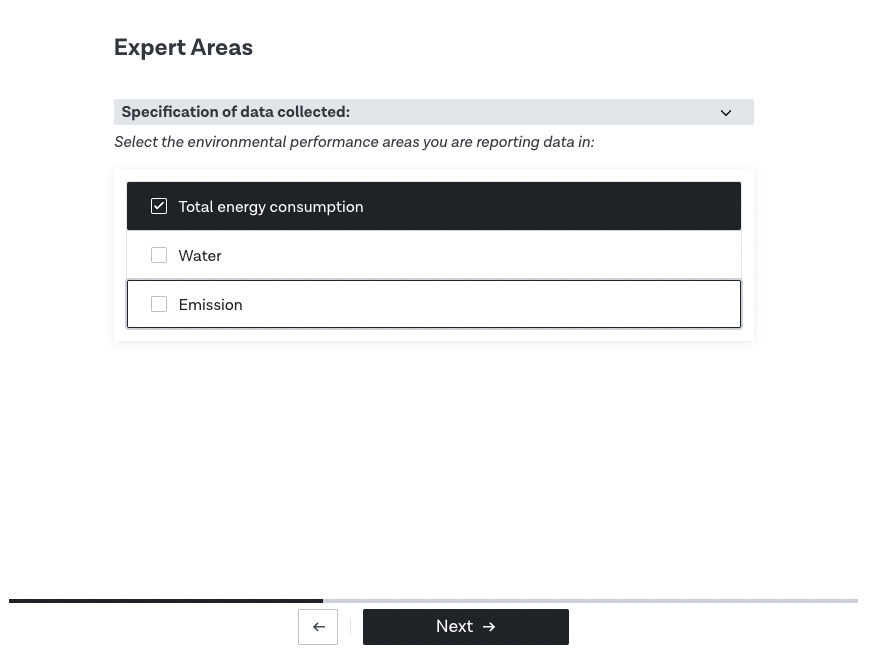Environmental, social, and governance (ESG) disclosure requirements have drastically increased in recent years, and non-financial performance increasingly plays a pivotal role in driving investments and consumer behavior.
In fact, 59% of consumers intend to start boycotting brands that don’t take action on climate change according to the 2021 global study “The Rise of Sustainable Media.” To address these pressures, regulations have come into effect in markets across the world requiring clear, transparent, and comprehensive ESG reporting from corporates.
This places new or added pressure on corporates to quickly comply with these regulations. As policies evolve and new ones come into force, organizations are often left scrambling to gather data from disconnected sources, centralize it in a single database, and digest it into the required reports.
But there are those who already have an effective ESG reporting strategy in place, driven by thoughtful processes and the right technology. Below, we’ll outline the must-knows about ESG, the challenges that come with it, and how you can overcome those challenges with the right approach.
Table of contents
What is ESG reporting?
ESG is a set of standards covering a company’s operations in three arenas: environmental, social, and corporate governance. Alongside financial factors, investors analyze ESG data to vet their investments, and regulators use it to determine compliance with regulations.
Reports about these three categories help investors, customers, and wider stakeholders measure a business’s impact on society. ESG reporting can be challenging for organizations because of the large quantities of data involved — but there are effective strategies for managing it.
64% of Millennial employees consider companies’ social and environmental commitments when deciding where to work.
The 2016 Cone Communications Millennial Employee Engagement Study
The rise of ESG reporting standards
As stakeholder demand for transparent sustainability reports has increased rapidly in the last several years, the availability of robust, standardized non-financial data from corporates has not been able to keep pace. Disparate reporting methods made comparisons between organizations difficult, and leaving it to companies to decide what to share allowed for practices like greenwashing (the use of marketing and public relations to deceive the public about the extent of an organization’s environmental efforts).
In response, the pace is picking up globally for the introduction of ESG reporting standards and regulations.
EU Regulations
Since 2018, the European Commission has pursued an action plan for financing sustainable growth, in an effort to create a unified EU classification system (the EU taxonomy for sustainable activities), introduce investors’ duties and disclosures, meet low-carbon benchmarks, and provide more transparent information to the markets.
In March 2021, the EU disclosure regulation came into effect and multiple additional frameworks to foster green finance (MiFID II, UCITS, AIFMD, IDD, Solvency II) and sustainable growth have been or are expected to be implemented by the beginning of 2023.
U.S. Regulations
In the US, ESG investing continues to rapidly increase, making it the world’s second-most major market for sustainable finance. As a result, investors and corporates globally are actively seeking advice on the implementation of (voluntary) ESG best practices and are struggling to keep up with ESG standards and regulations.
The SASB’s standards, in force since 2018, are a set of ESG-related issues that are relevant to financial performance for 77 industries and help companies disclose sustainability-related information to investors. SASB is a non-profit that was founded in 2011 to establish a common language about finance and sustainability for investors and businesses.
The Nasdaq Board Diversity Listing Rules 5605(f) and 5606 (now in force), approved in August 2021, require board diversity disclosures for listed companies. The standards that are now required include reporting on board-level diversity statistics (reported annually). Organizations must either meet a board diversity minimum or provide a public disclosure of why they have not met the minimum.
Finally, the upcoming GRI Standards, which will come into effect in 2023, are an easy-to-use, modular set of standards related to many ESG topics: human rights, environmental due diligence, etc. The GRI Standards can apply to public or private organizations of any size.
Click here for a full list of ESG regulations.
The challenges of ESG reporting requirements
The key problem arising for businesses as a result of reporting requirements is how to accurately gather, evaluate, and present ESG data. Because of the sudden arrival, and constant change, of ESG standards, and the lack of software to support collection and reporting, companies often manually generate ESG reports for different stakeholders (e.g., investors, shareholders, regulators, internal use).
This quickly becomes a time-intensive and tedious task. Such reports must also be updated and distributed regularly. Additionally, companies often collect and maintain all ESG data in large, difficult-to-navigate Excel sheets. While essential in the absence of software, relying on these manual processes is an inefficient use of time and resources, increases the risk of human error, and often means that risks are identified too late.
Gathering and evaluating social data is particularly challenging, with data like employment metrics, ethical supply chain systems, product liability, and workers’ safety proving difficult to measure consistently. Additionally, companies need to be very careful about how they collect and store sensitive personal data related to demographics like gender, sexuality, and ethnicity, which are essential to some ESG issues, but subject to additional regulation and personal sensitivity.
The risks of non-compliance
Failure to comply with ESG requirements results in substantial litigation risk, such as investors suing for greenwashing, or employees bringing claims for discrimination or breach of health and safety regulations. Non-compliance with the EU General Data Protection Regulation (GDPR), for example, can result in a fine of up to €20 million, or 4% of the firm’s worldwide annual revenue from the preceding fiscal year – whichever is higher.
Non-compliance with the EU General Data Protection Regulation (GDPR) can result in a fine of up to €20 million or 4% of the firm’s worldwide annual revenue.
There has also been an increase in shareholder activism for ESG topics, as exemplified by the success of a 2021 alliance of hedge funds in installing new directors on Exxon’s board with the goal of reducing the company’s carbon footprint. Beyond these immediate stakeholders, environmental groups are increasingly likely to levy climate-related legal action against businesses.
Further hidden consequences of non-compliance include reputational damage, inability to attract desired investment, difficulty hiring, and the risk of falling behind the competition that has a better-defined ESG reporting strategy and execution.
The tech-powered approach to ESG reporting
High-quality and compliant ESG reports contain accurate and up-to-date information. While many organizations have reported on ESG performance manually, the process can be made much more efficient and effective with automation.
In practice, this can look like:
- A social performance tool that collects cross-departmental information about data protection practices or inclusivity
- An investment checker that audits investment performance in an ESG context, collects the information in a database, and displays it on a dashboard
- A tool that assists with vendor evaluation and records the responses to ensure supply chains remain transparent
ESG tools, like those built on BRYTER, help organizations tackle the challenges on the journey towards operationalizing their ESG strategy, and maintain ESG compliance once processes are in place. With self-service apps, organizations can identify potential ESG risks and opportunities based on criteria such as sector and jurisdiction. This enables organizations to gather data from across the organization to gain an understanding of current shortcomings and compliance risks, and to take steps to improve their overall ESG rating.
Digital solutions make it possible to build customized questionnaires that collect ESG KPI data from multiple departments, business units, and regions automatically as needed. Organizations can then store and display that data in one transparent, centralized database from which further audits are easily performed. This streamlines the entire ESG KPI collection process and enables those responsible for ESG at a company to focus on important matters, such as implementing organizational ESG strategy.
Automated ESG reporting tools also dramatically reduce the risk of reporting errors through a standardized intake and calculation process.

That data can then be managed and processed with an ESG report generator: companies can upload standardized templates and automatically create an information collection and processing workflow, with all calculations processed automatically, so users can regularly produce scorecards of their most recent ESG standing and accurately communicate progress on strategy.

With digital solutions like this, organizations can customize stakeholder communication solutions to better showcase their ESG targets and performance, all while saving time and reducing the risk of errors. To meet investor needs, they can tailor the reporting to include preferred criteria and detail while maintaining full control over the shared information.

Organizations can also use tools like BRYTER no-code platform to seamlessly channel environmental, social, and governance key performance indicators to one centralized platform. The securely stored performance data feeds into the automated ESG report generation process, sustainability strategy monitoring features, and data visualization dashboards.
FAQs about ESG reporting
ESG reporting is the process of compiling, analyzing, and sharing data that is relevant to one or more ESG (environmental, social, and governance) factors with stakeholders.
ESG reporting is important because it helps stakeholders understand an organization’s performance in relevant environmental, social, and/or governance factors. As interest in ESG performance grows, reporting quickly and accurately has an impact on the organization’s business relationships, reputation, and bottom line.
An ESG score is a rating of a company’s sustainability level. It takes into account all of an organization’s publicly reported aspects of ESG, including their environmental impact, treatment of employees, governance and transparency, etc. ESG scores are useful for stakeholders to evaluate an organization’s performance, and can also provide an opportunity for board members to identify gaps and see how their company compares against the competition.
An ESG report is a document that describes the performance of an organization on one or more categories related to environmental, social or governance factors, typically annually or quarterly.
An effective method for reporting on ESG performance is introducing automated reporting, which automatically gathers and analyzes the relevant information and puts it in an easily shared format that is always up-to-date.
Start managing ESG reporting requirements proactively and efficiently
As emphases on social values grow and ESG continues to become an expectation for more organizations and industries, the reporting regulations that have already been proposed around the world will come into effect, and more regulations will no doubt be introduced.
While reporting requirements are on track to become more standardized, managing them will still be a daunting task, and the most effective strategy for getting ahead of regulations is by adopting automation solutions for data collection and reporting.
With easy-to-use tools like BRYTER no-code app builder, the various aspects of ESG — like collecting data on KPIs, checking investments, and generating reports — can be managed automatically and in a centralized way.
See for yourself how BRYTER can automate ESG data collection and reporting: book a demo and ideation session with one of our experts today.















